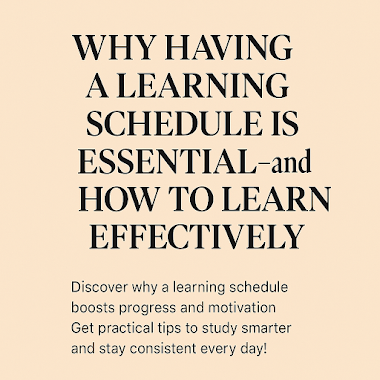Why Having a Learning Schedule is Essential: How to Learn Effectively

In today’s fast-paced world, learning a new skill or subject can be both exciting and overwhelming. With so many distractions: social media, work, family, and personal obligations, it’s easy to lose track of your learning goals. That’s why having a schedule is not just helpful, but essential. A clear learning schedule brings structure, consistency, and focus into your study routine, helping you stay motivated and make real progress over time. One of the most powerful benefits of having a learning schedule is that it builds consistency. Learning something new, whether it's a language, musical instrument, or technical skill, is far more effective when practiced regularly. Instead of trying to absorb everything in one long session once a week, short and frequent study sessions allow your brain to absorb and retain information better. Dedicating just 20–30 minutes a day to focused learning can create lasting results over time, without causing burnout. A schedule also helps reduce t...



